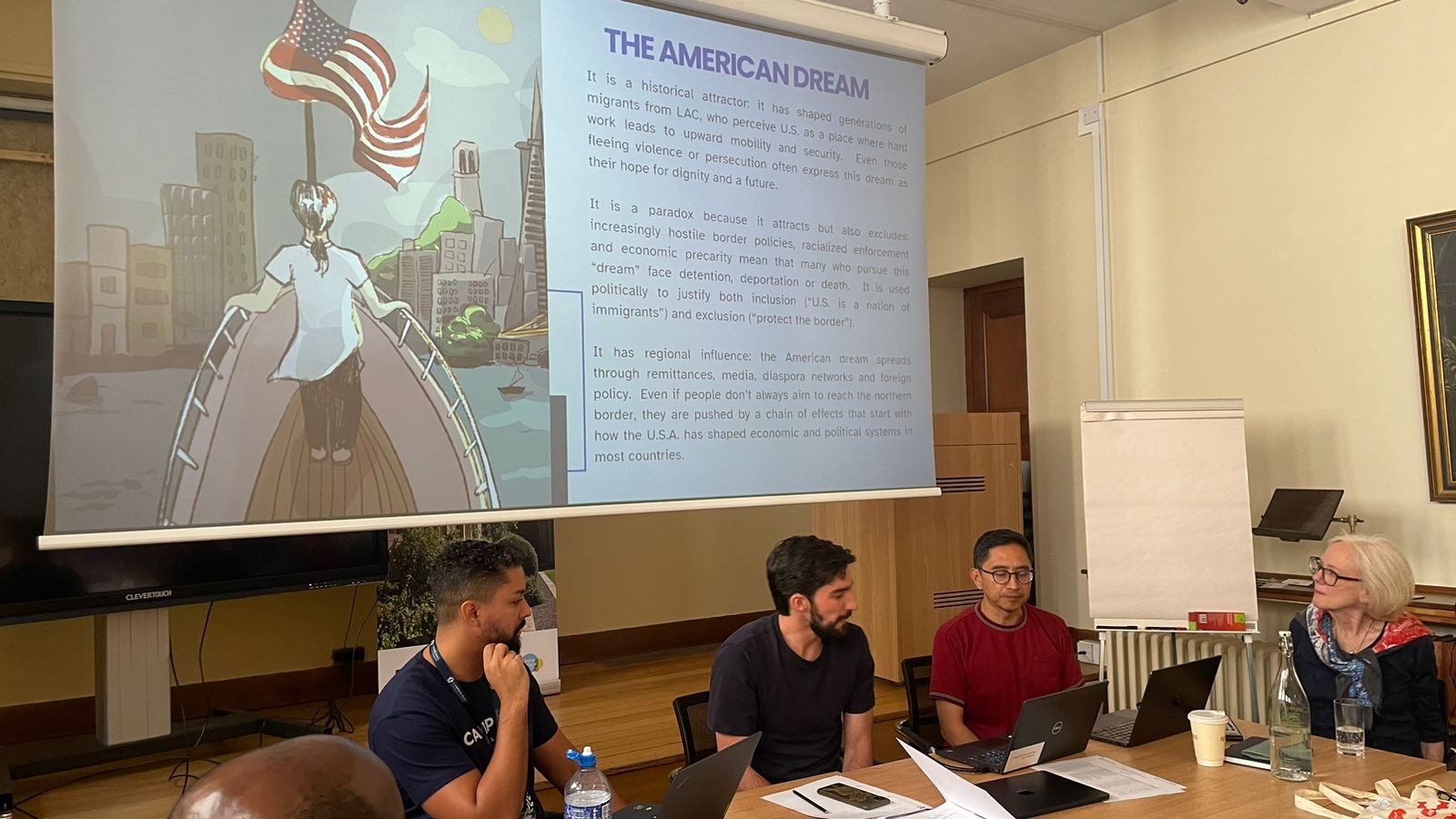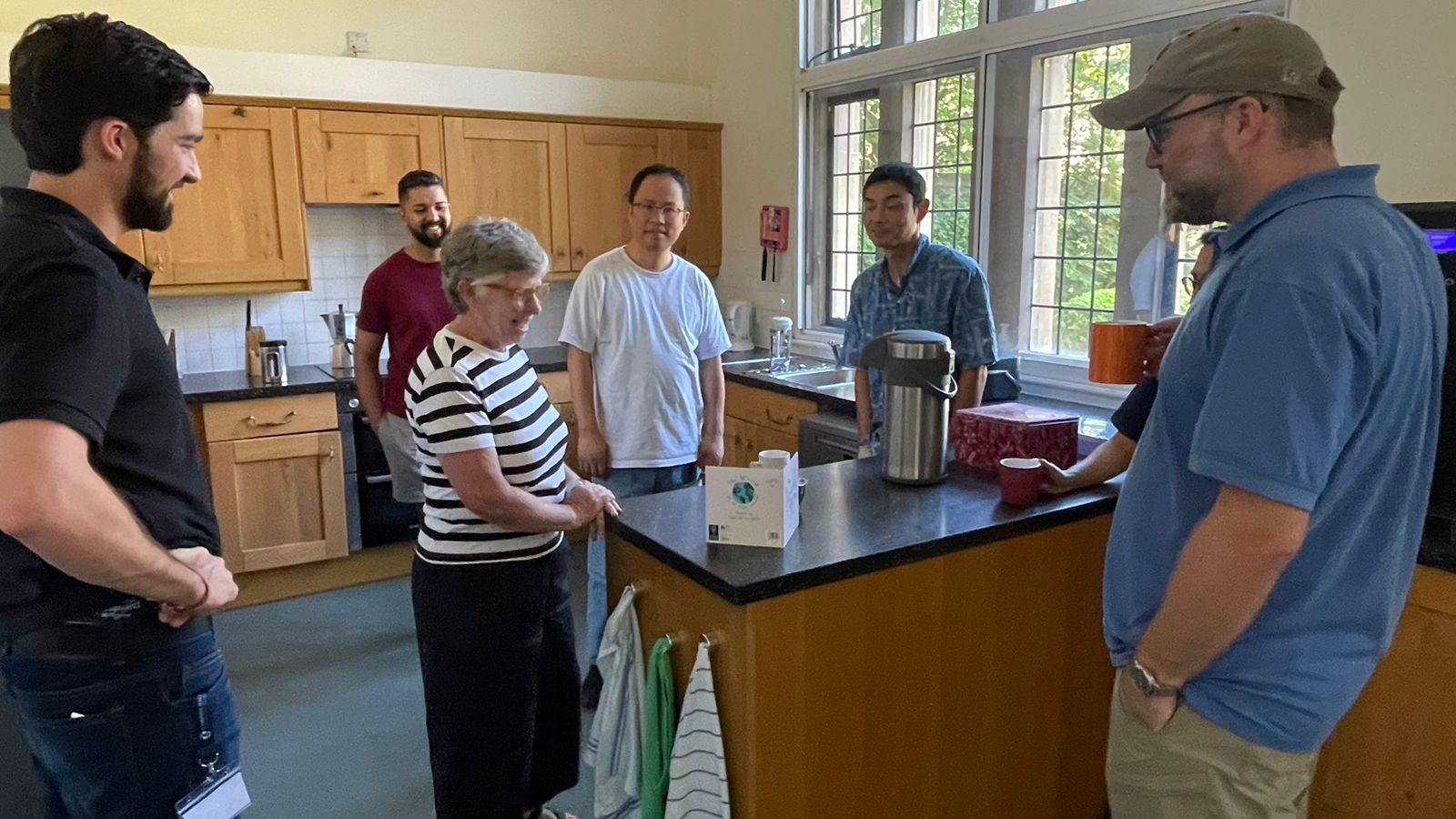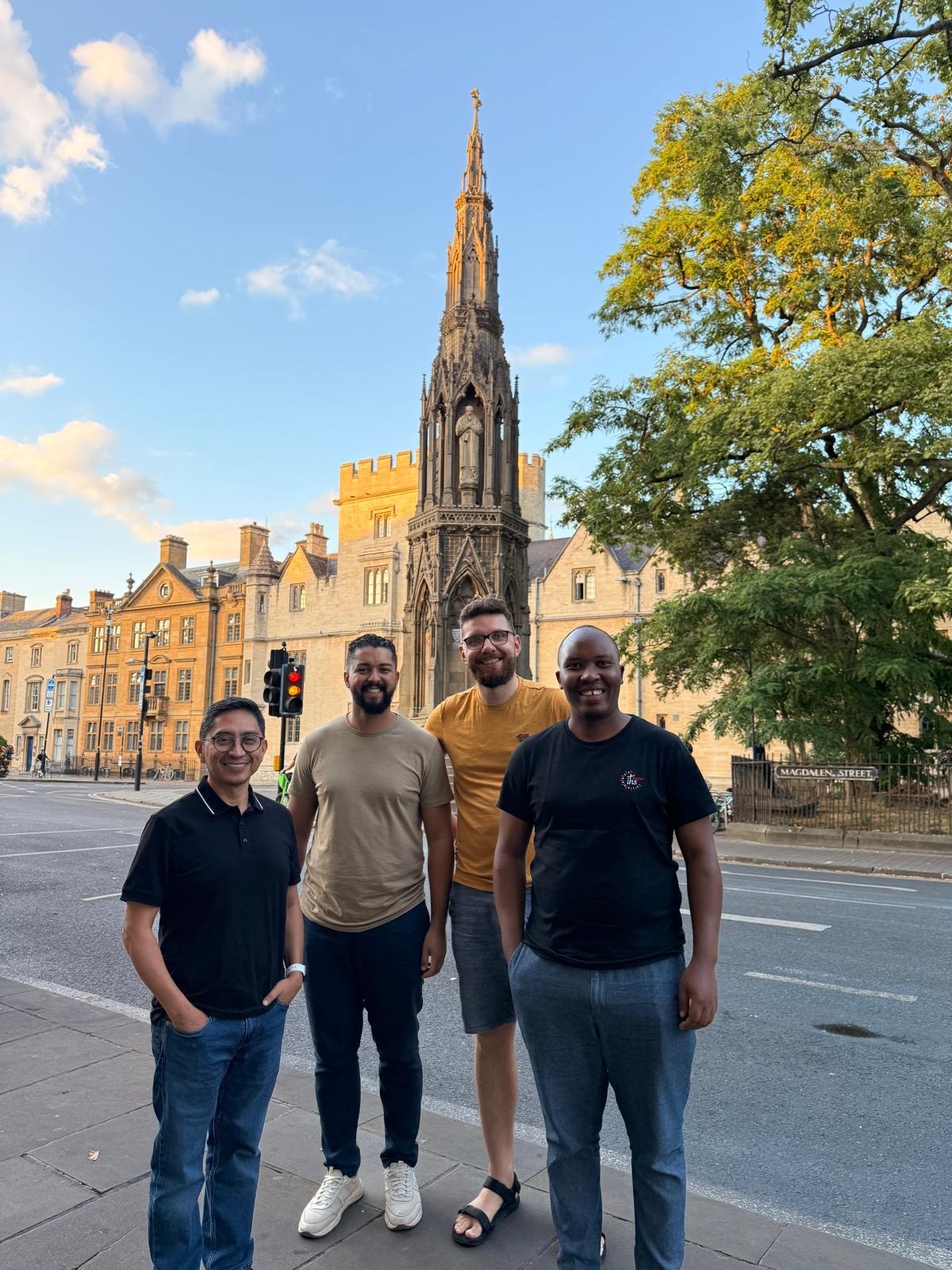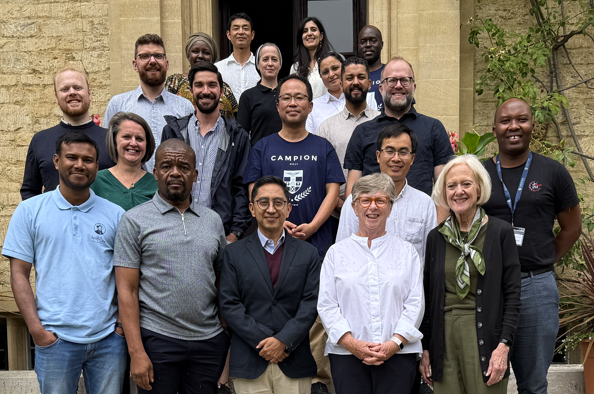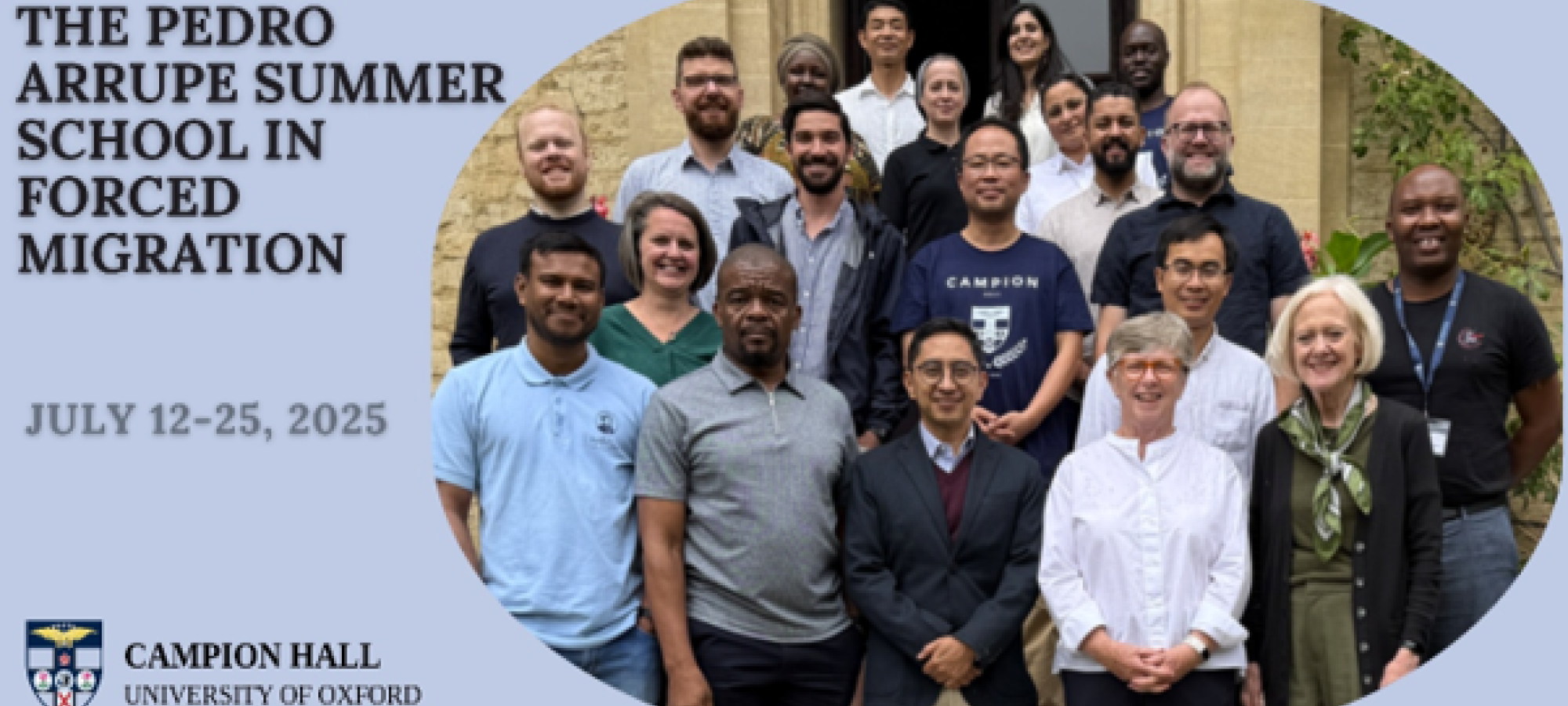
Pedro Arrupe Summer School in Forced Migration, July 2025
The fourth Pedro Arrupe Summer School in Forced Migration was conducted at Campion Hall in July 2025. The course was led by Sister Maryanne Loughry RSM (PhD, Fr Rampe Hlobo SJ, Professor Lisa Sowle Cahill, Nacho Eguizábal and Gregoire Catta SJ.
Thirteen Jesuits in formation and three religious sisters met at Campion Hall for two weeks. They came from a variety of national origins and contexts of ministry, and most had engaged in work with Jesuit Refugee Service, or are presently filling roles in JRS or other Jesuit social ministries. The purpose of the summer school was to offer a formative experience for the mission to accompany, serve and advocate for refugees, through social scientific insights into the global situation of forced displacement, theological reflection on the response of the Church, Ignatian spirituality, and Catholic social teaching.
“The Summer School has invited me to reflect more profoundly on the complex realities of forced migration, especially on how displacement affects people’s lives across different global contexts. It has helped me to see migration not only as a humanitarian and political issue, but also as a deeply spiritual and theological one.”
Participant at the 2025 Summer School
Background of the Summer School
The world is facing the highest number of violent conflicts since the second world war and according to the UN High Commission for Refugees, more than 117 million people are forcibly displaced worldwide by disruptions caused by these violent conflicts as well as religious persecution, ethnic-racial hostilities, climate change and extreme poverty. At its landmark General Congregation 34 (1995), the Society of Jesus renewed its commitment to the promotion of justice as an integral part of its mission, to the protection of human rights, and to the development of communities of solidarity (Decree 3). In this same spirit, the Jesuit Refugee Service (JRS) has, since its founding in 1980 by Jesuit General Pedro Arrupe, prioritised accompaniment, service and advocacy for refugees and migrants as a Jesuit expression of faith, hope, and solidarity with the world’s most vulnerable peoples.
Campion Hall, University of Oxford, expresses its Jesuit commitment to refugees especially through its Pedro Arrupe Research Fellow in Forced Migration Studies as well as the Pedro Arrupe Summer School in Forced Migration. This is the third time it has hosted this two-week Summer School in collaboration with JRS and Boston College.
The course offered insights into the global situation of forced displacement. It used Ignatian, philosophical and theological resources to reflect on the response of the Church and the Catholic social teaching. Aimed at Jesuits and their JRS partners in forced displacement services, the course engaged the practical demands and the faith-based significance of work with migrants. It encouraged participants to discern the potential role of accompaniment of the forcibly displaced when considering their own future ministries and vocational paths.
The course was taught in varied formats including lectures, power-point presentations of specific initiatives, small group discussions, films, and excursions. The curriculum drew on the expertise of current JRS leadership and field representatives, Jesuit scholars of philosophy and theology from Campion Hall (including the Pedro Arrupe Research Fellow), faculty and research fellows of the Oxford Refugee Studies Centre, Boston College faculty, and theologians and experts on Catholic social teaching from Jesuit universities internationally.
The course content included drivers of displacement, the international protection framework, Global Compact on Refugees, and Global Compact on Migration, as well as barriers to protection in national policies and their implementation. During the course, participants had the opportunity to hear from refugees and migrants as well as from experienced JRS workers. Resources of Catholic theology and social teaching were brought to bear on the justice of migration policy, especially the dignity of all persons, the common good, the priority of the poor, solidarity; while the integral connection of hope to accompaniment of migrants was developed theologically and in light of JRS mission and practices.
The international constituency and experience of participants themselves furnished an opportunity for sharing of experiences, obstacles, and success stories, furthering mutual refinement of “best practices.” Shared learning advanced understanding of how to fulfil the one JRS mission of accompaniment, service and advocacy through diverse local strategies adapted to particular histories, cultures, capacities, and migrant populations.
Upon successful completion of the course, including a final reflection paper, participants received a certificate of completion from Campion Hall and JRS.
